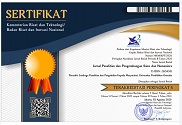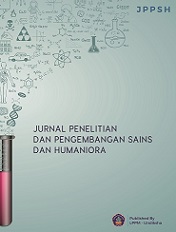Hubungan Kesesakan dan Kontrol Diri dengan Kecenderungan Agresi Masyarakat Dikawasan Padat Penduduk Kota Surabaya
DOI:
https://doi.org/10.23887/jppsh.v4i2.29998Keywords:
Aggression, Crowding, Self ControlAbstract
The number of cases of violence occurring in big cities such as Surabaya is partly due to the density of the area due to population growth. The population of the population causes congestion and has the effect of changing one's attitude. The purpose of this study was to examine the relationship between tightness and self-control with the tendency of communist aggression in densely populated areas of the city of Surabaya. This type of research is descriptive quantitative research. The population of this research is the people who live in the densely populated city of Surabaya. The number of samples consisted of 85 people between the ages of 16 and 55. The sample criteria were determined to be around 16 years to 55 years. From the results of hypothesis testing that has been done, it is found that H0 and Ha are accepted, it can be seen that the F value is 0.93081 with the Sig. 0.00 indicates that distress and self-control affect aggression. The contribution of the influence of distress and self-control can be seen from the value of the coefficient of determination (R2) based on the calculation results, the R2 value is 0.687. This means that the stress and self-control impact on people's attitudes of anger is 68.7% and the remaining 31.3% are influenced by other factors that are not explained in this study.
Downloads
Published
Issue
Section
License
Authors who publish with the Jurnal Penelitian dan Pengembangan Sains dan Humaniora agree to the following terms:
- Authors retain copyright and grant the journal the right of first publication with the work simultaneously licensed under a Creative Commons Attribution License (CC BY-SA 4.0) that allows others to share the work with an acknowledgment of the work's authorship and initial publication in this journal.
- Authors are able to enter into separate, additional contractual arrangements for the non-exclusive distribution of the journal's published version of the work (e.g., post it to an institutional repository or publish it in a book), with an acknowledgment of its initial publication in this journal.
- Authors are permitted and encouraged to post their work online (e.g., in institutional repositories or on their website) prior to and during the submission process, as it can lead to productive exchanges, as well as earlier and greater citation of published work. (See The Effect of Open Access)









